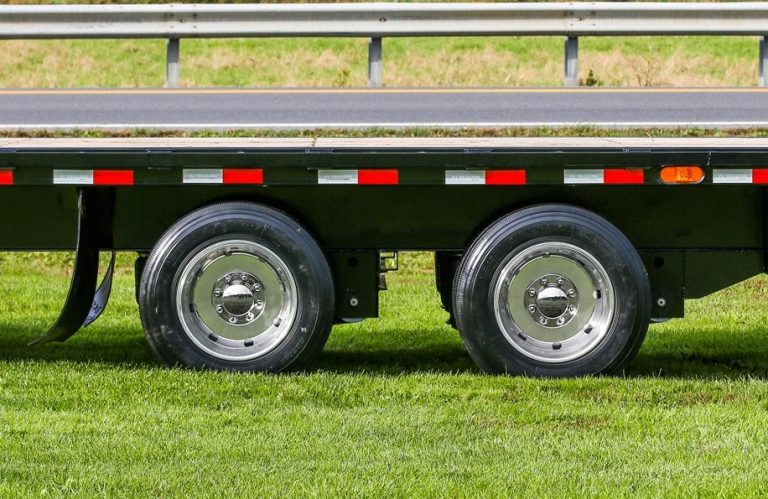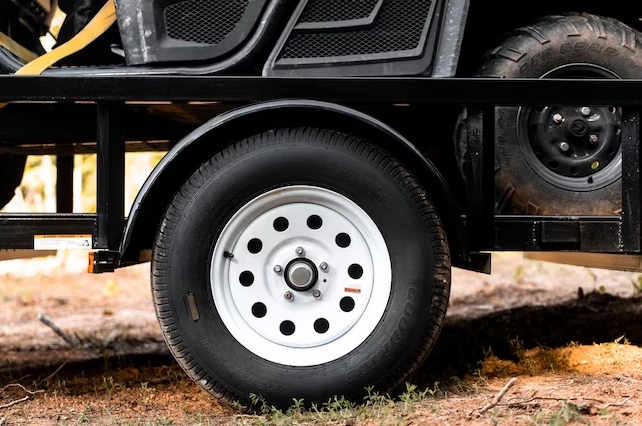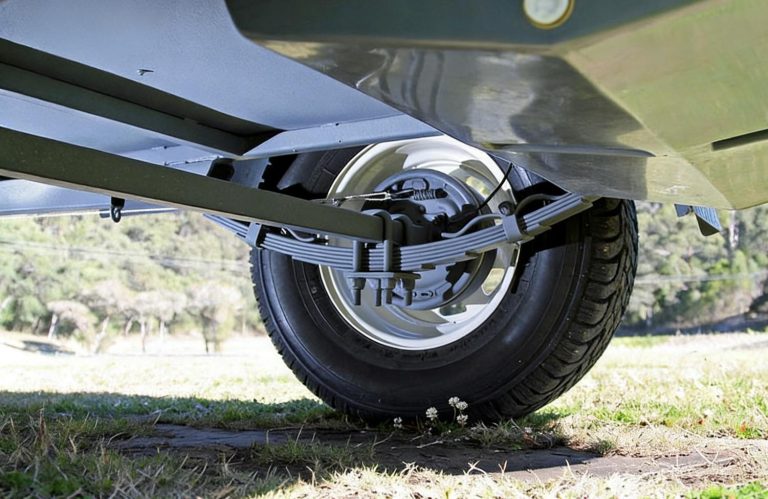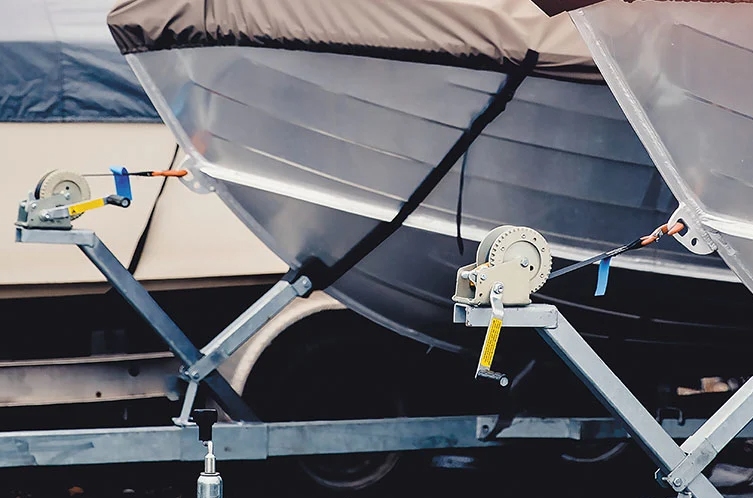Picking the right connector for your trailer is vital. It ensures safe and smooth towing. Whether you’re pulling a boat, RV, or heavy gear, the connector links your trailer to your vehicle. This keeps everything stable and working well. Two common choices are ball couplers and pintle couplers. Each has unique benefits. Which one suits your needs? This guide compares ball couplers vs. pintle couplers. It covers their features, uses, strengths, weaknesses, and key factors to help you choose. We’ll also highlight GO Trailer as a reliable supplier for top-quality connectors.
Understanding Ball Couplers and Pintle Couplers
Let’s first explain these two connector types. We’ll also look at their main uses.
What Are Ball Couplers?
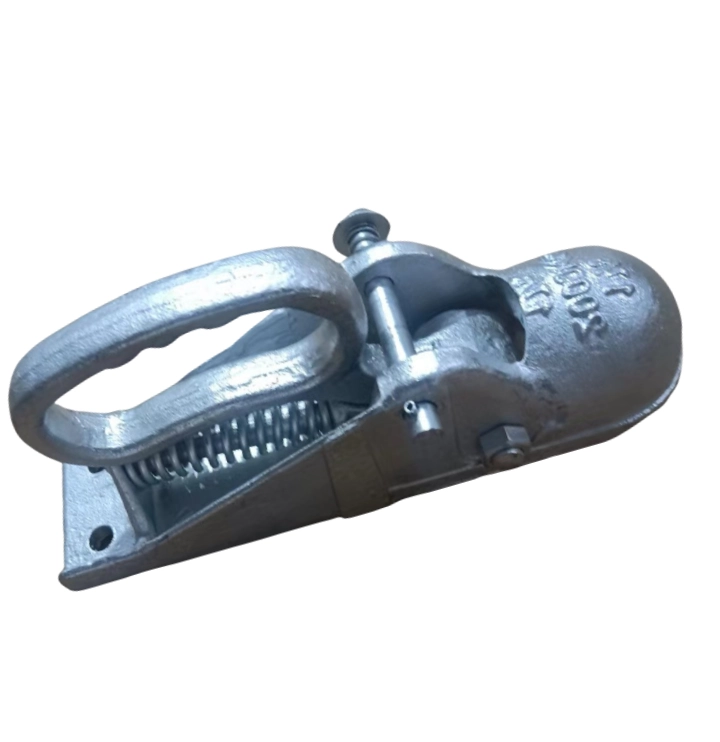
Ball couplers are the most popular connector type. They attach to a round hitch on the vehicle. The hitch is usually 1-7/8” to 2-5/16” wide. These connectors work well for light to medium trailers, like RVs, utility trailers, and boat trailers.
- Key Features: Simple locking system. Fits standard round hitches. Comes in different weight limits.
- Best for: Everyday towing. Small to medium trailers.
See GO Trailer’s 1-7/8” Ball Trailer Coupling for a dependable ball coupler.
What Are Pintle Couplers?
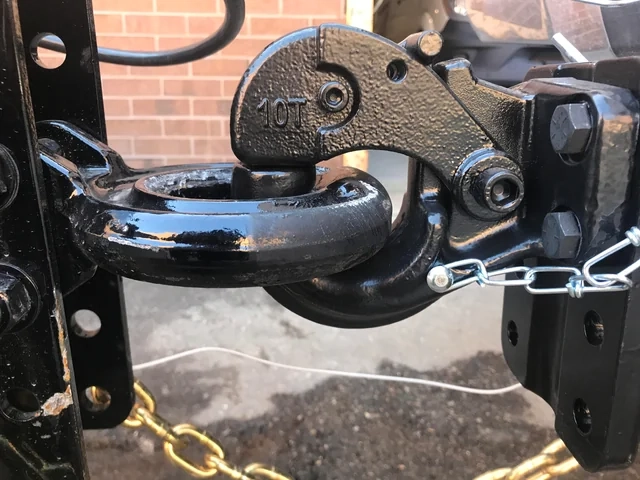
Pintle couplers use a hook-and-ring system. The vehicle has a hook. The trailer has a ring that locks into it. These connectors are built for heavy-duty tasks, like hauling construction equipment or large cargo trailers.
- Key Features: Strong hook-and-ring design. Handles high weight. Tough in harsh conditions.
- Best for: Heavy towing. Off-road or industrial use.
Comparing Ball Couplers vs. Pintle Couplers: Key Differences
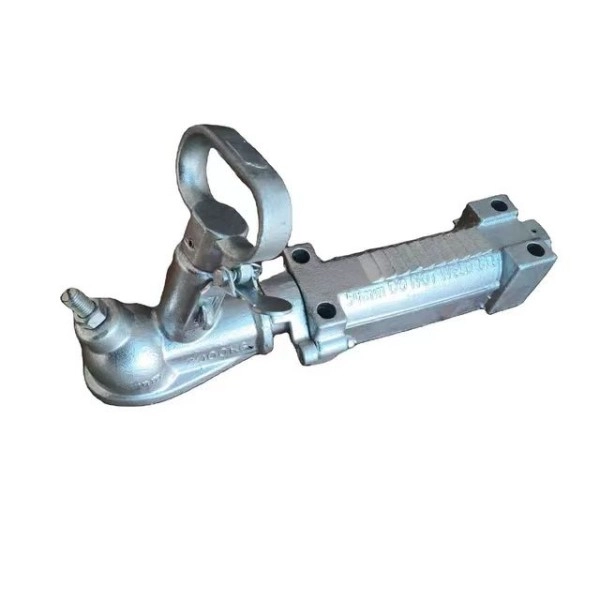
To choose between ball couplers vs. pintle couplers, you need to know how they differ. Let’s compare their design, performance, and uses.
Weight Capacity and Towing Capabilities
Weight capacity matters a lot when picking a connector. The table below shows typical weight ranges for each type:
| Connector Type | Weight Capacity | Typical Uses |
| Ball Coupler | 1,500–20,000 lbs | RVs, boat trailers, utility trailers |
| Pintle Coupler | 10,000–60,000 lbs | Heavy gear, construction trailers, military vehicles |
- Ball Couplers: Great for trailers under 20,000 lbs. They work well for most recreational and light business towing.
- Pintle Couplers: Made for heavy loads, often over 20,000 lbs. They shine in tough settings, like construction sites.
Ease of Use and Installation
How easy a connector is to use affects your towing experience. This is especially true if you hitch and unhitch often.
- Ball Couplers: Very easy to use. The locking system is simple. Installation needs basic tools. They’re great for beginners or casual users.
- Pintle Couplers: A bit trickier. The hook-and-ring system needs careful alignment. Locking the ring takes practice. Heavy setups may need expert help.
Try the 50mm Ball 2000kg 2-Holes Coupler for a simple ball coupler.
Durability and Maintenance
Both connector types face tough conditions. Their durability and upkeep needs vary.
- Ball Couplers: Made of steel or cast iron. Often coated with rust-proof finishes, like galvanizing. They need regular lubrication. Check them for wear sometimes.
- Pintle Couplers: Very sturdy. Built for rough ground. Their open design avoids dirt buildup. But they may need more cleaning in muddy areas.
Cost and Availability
Cost is a real concern for most trailer owners.
- Ball Couplers: Cheaper and easy to find. They’re standard in most towing setups. Replacements are simple to get.
- Pintle Couplers: More expensive. Their heavy-duty design costs more. They’re less common in recreational towing. This can make them harder to find.
Ball Couplers vs. Pintle Couplers: Pros and Cons
To decide wisely, look at the benefits and drawbacks of each connector type.
Ball Couplers: Pros and Cons
- Pros:
- Budget-friendly and widely available.
- Simple to install and use.
- Works for many trailers, like RVs and utility trailers.
- Fits standard round hitches, like the 50mm Ball 60mm Channel Straight Coupler.
- Cons:
- Can’t handle as much weight as pintle couplers.
- Less steady on rough ground or with heavy loads.
Pintle Couplers: Pros and Cons
- Pros:
- Super strong for heavy towing.
- Very stable, even on bumpy surfaces.
- Tough in extreme conditions. Perfect for industrial use.
- Cons:
- Costs more. Not common in recreational towing.
- Harder to hitch and unhitch.
When to Choose Ball Couplers vs. Pintle Couplers
Your towing needs decide which connector is best. Here are specific cases to guide you.
Choose Ball Couplers If:
- You tow light to medium trailers, like RVs, boat trailers, or utility trailers.
- You want something easy to use and affordable.
- You mostly tow on paved roads or for fun.
The 50mm Ball 2000kg 2-Holes Coupler is great for small to medium trailers.
Choose Pintle Couplers If:
- You tow heavy gear or large trailers, like construction machines or military vehicles.
- You need top stability on rough or off-road ground.
- Strength and high weight capacity are key.
Key Considerations for Choosing Between Ball Couplers and Pintle Couplers
Besides the differences above, think about these factors. They help you pick the right connector.
- Trailer Weight: Check your trailer’s total weight rating. Choose a connector that can handle more than that.
- Hitch Fit: Make sure the connector matches your vehicle’s hitch system. Ball couplers need a round hitch. Pintle couplers need a hook.
- Towing Conditions: Paved roads suit ball couplers. Rough or off-road areas favor pintle couplers.
- Budget: Ball couplers cost less. Pintle couplers are pricier but worth it for heavy tasks.
GO Trailer: Your Trusted Source for High-Quality Couplers
For reliable ball couplers or other trailer parts, GO Trailer is a great pick. Based in Qingdao, China, GO Trailer has over 15 years of experience making top-notch trailer components. Their connectors are CE-certified and coated to resist rust. They use advanced tools, like CNC machines and laser cutters, for precision. Whether you need a ball coupler for an RV or a heavy-duty option, GO Trailer offers strong, customizable solutions. Contact our team for professional help.
Frequently Asked Questions (FAQs)
Q1. What’s the difference between ball couplers and pintle couplers?
A1. Ball couplers lock onto a round hitch with a latch. They’re great for light to medium trailers. Pintle couplers use a hook-and-ring system. They’re built for heavy towing and offer more stability.
Q2. When should I pick a ball coupler instead of a pintle coupler?
A2. Choose a ball coupler for smaller trailers, like RVs or utility trailers. They’re affordable and easy to use. Pintle couplers are better for heavy loads or rough ground.
Q3. Are ball couplers or pintle couplers easier to care for?
A3. Ball couplers need regular lubrication and rust checks. They’re simple to maintain. Pintle couplers are tough but may need cleaning in muddy areas because of their open design.
Q4. Can I use a ball coupler for heavy towing?
A4. Ball couplers usually handle up to 20,000 lbs. For heavier towing, pintle couplers are better. They offer more strength and stability.
Ready to Choose Your Trailer Coupler?
Deciding between ball couplers vs. pintle couplers depends on your trailer’s weight, towing conditions, and budget. Ball couplers are simple and cheap for fun towing. Pintle couplers provide unmatched strength for heavy tasks. A high-quality connector ensures safe and reliable towing. Visit GO Trailer today to browse their connector options. Find the perfect fit for your trailer. Need help?



